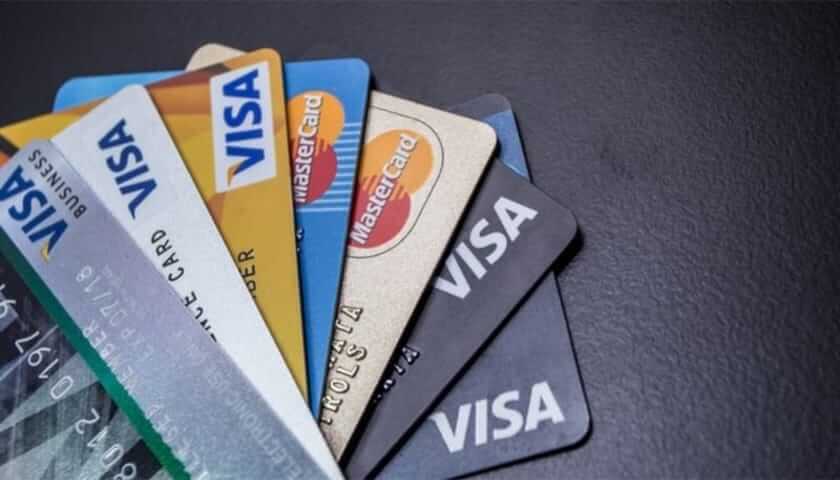Last Updated on 19/05/2021 by Deepak Singla
What Are Credit Card Interchange Fees?
Merchants all around the world use credit cards to carry out transactions. However, processing these credit cards requires some amount. Interchange fees form most of this amount. Interchange fees are accepted by the banks that issue the card to the merchants. In this article, we will break down the concepts to understand credit card interchange fees.
Why Do Banks Charge Interchange Fees?
The bank that has issued you the card will charge fees to process the payment. This cost covers the costs for handling the transaction and fraud and debt costs. This is not negotiable, which makes it a mandatory requirement to make transactions possible.
Who Pays the Interchange Fee and How Are They Processed?
You pay the interchange fees. Merchants pay this fee to process the purchase. You don’t hand in the amount to the acquiring bank, but it is indirectly charged. As you make a transaction, acquiring bank pays interchange fees instantly, which is then taken from you later.
Suppose you have accepted the card to receive payment from a customer. Whichever bank you will use to make this transaction (acquiring bank) will deposit the said amount in your bank (usually within a couple of days). The customer’s bank (issuing bank) will then subtract the amount from his bank to return the amount to the acquiring bank. However, issuing banks also deducts an interchange fee for this transaction, usually seen as its fee.
As we said earlier, the acquiring bank has already paid the interchange fees. So how do they recollect it? When the issuing bank gives back the transaction amount, it also returns the interchange fees paid before to the acquiring bank. However, the issuing bank gives a greater interchange fee than it was charged. In this case, both the issuing bank and acquiring bank gets the benefit.
How Much Are Interchange Fee Per Transaction?
It is inevitable and a mandatory requirement to process the payment. Most of the time, you will come across Visa MasterCard and Visa Credit Card interchange fees. These are the two biggest companies that handle the transactions. The amount of credit card interchange fees depends upon the type of card used. The credit card interchange fee is somehow greater than the debit card interchange fee.
The interchange fees you will observe on the slip will have a percentage and a fixed amount next to them. That percentage varies and is dependent upon the type of transaction.
To determine how the credit card interchange fee works per transaction, you may have to refer to the company’s criteria (Visa or MasterCard). The sheet consists of tables representing the amount of the interchange fees based on the type of transaction. The criteria lay down specific requirements. The transaction carried out by you is analyzed by the system, and if it falls under a certain criterion, it determines the interchange fee. The classification and categorization of the transaction are called interchange qualification.
Sometimes pricing companies don’t give you the criteria for the interchange fee calculation. It does not mean that they have exempted you from the charges. Instead, they keep the interchange details hidden from you. They still charge interchange fees on each transaction you make.
Discover Cards Interchange Fees:
Other than Visa cards and MasterCard, you may find discover cards. Discover cards have a similar criterion to determine the amount of interchange fee. However, there is a slight difference. You will have to pay a lower interchange fee if you are making recurring payments than one-off payments.
Factors That Influence the Interchange Qualification:
There are certain factors on which the pricing for interchange fees depends. Now let’s go through them!
1. The Method Used For Processing Transaction:
There are two methods of processing the transaction, i.e., card present and card not present transaction.
- Card present transaction requires credit card swiped against a card-reading device electronically.
- Card not present transaction doesn’t require a card for making the purchase. It uses an online portal or data entry into a website to process the transaction.
- Card present transactions charge fewer interchange fees than the card, not present transactions. Basically, the reason is that CP transaction doesn’t take many efforts. If you want to lessen the transaction fee, try swiping your card whenever possible—this helps merchants save bucks while making a big transaction.
2. Merchant Category Code
Merchant category code or MCC depends on the type of business you’re running. You are categorized into a specific category by default. It means that you naturally cannot control it, but it majorly impacts the transaction fee or interchange fees.
3. Type of Cards
Another factor is the type of card you are using. Whether it’s a debit card or credit card, the interchange fee varies with each type.
4. Brand of the Card
Interchange fees differ for each brand. Visa credit card interchange fees will be different from Discover card interchange fees.
5. Owner of the card
One of the factors influencing the pricing of interchange fees is the card owner. Interchange fees will be unique for each set of populations. A card can be owned by an individual, business, or agency.
American Express Cards Interchange Fees:
American Express charges a discount rate instead of interchange fees, which works in the same fashion. It has a percentage next to a fixed amount set by the company. The discount rate doesn’t depend upon qualifying factors observed in Visa card, MasterCard, and Discover card. It relies on the type of business served.
Why Is It Necessary for You to Understand the Credit Card Interchange Fees Criteria?
When a processer adds transaction charges to your bill, it is possible that it adds more than the required or set interchange fees. Certain brands charge additional charges (Padding Interchange) without you knowing in the name of interchange fees. You will not realize it until you fully understand the concept and calculation of interchange fees. Understanding the concepts will help you opt for your business’s best convenient method to carry out transactions.



